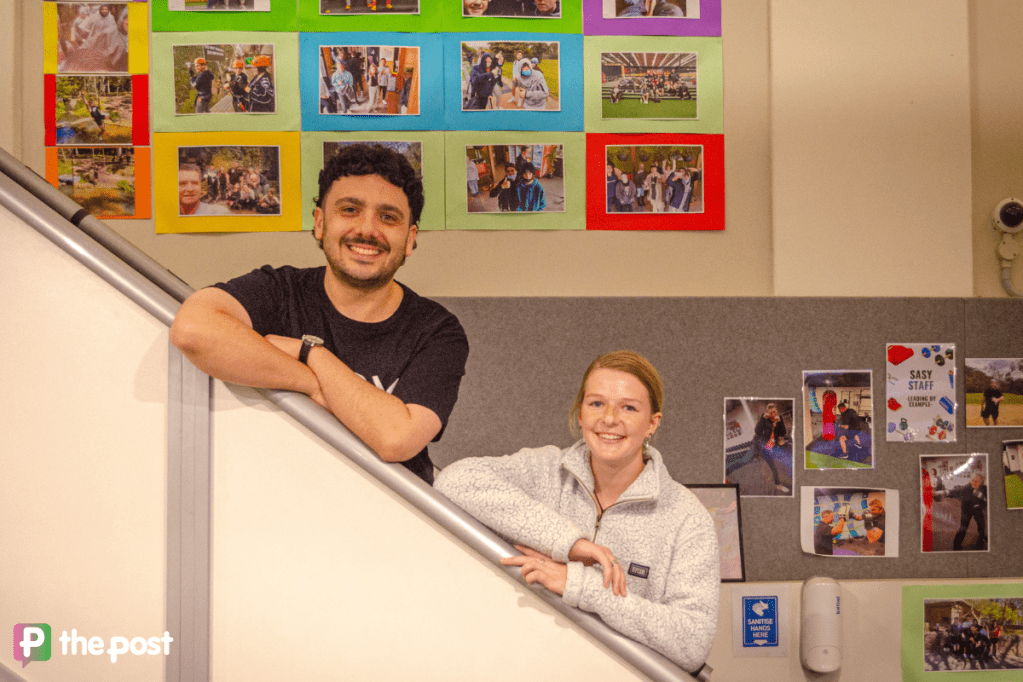Medical students have expressed concern about the quality of their training amid uncertainty over placements and internships held at facilities to be closed by the State Government.
The Repatriation General Hospital (RGH) and the Noarlunga Hospital emergency department are important teaching facilities for the Doctor of Medicine course at Flinders University.
Both are planned to be scaled down, with emergency and rehabilitation services, among others, moving to larger metropolitan hospitals as part of the State Government’s ‘transforming health’ proposals, unveiled last week.
The President of the Flinders Medical Students’ Society, Nicolas Stock, told InDaily the proposals had thrown the future of several placement courses into doubt.
“In the four-year (Doctor of Medicine) degree, it would be a reasonable majority of students that at some point under the current system would have a teaching component at the Repat … or Noarlunga,” he said.
“A large component of second, third and fourth year is actually taught at (those sites).
“It is going to have an impact; we’re still trying to get our head around what that will be.”
READ MORE: Repat gone, fewer beds in Health shakeup
Sam*, a second year medical student at Flinders University, told InDaily he feared for the quality of his future training if larger student groups are placed with doctors at the Flinders Medical Centre, when students are diverted from placements at the Repatriation and Noarlunga facilities.
“If you have more students to one doctor as a teaching setup, it means that each student’s going to get less of the one-on-one guidance – less of the opportunity to actually practise their clinical skills.
You might like
“It’s better when you have smaller groups. I’ve found that all the way through my education.”
He was also concerned patients would be more reluctant to allow students to be present for medical treatment if the student groups were to become larger.
“The hospital’s not a good place for anyone to be, as it is, and they don’t want to have heaps and heaps of people standing around the bed (and) asking questions,” he said.
“I have had patients not want to see medical students when there’s just been two of us … let alone if there’s eight there.
“It’s a big crowd of people.”
He said new university programs, which would need to be set up once the Repat and Noarlunga facilities close, would likely have teething problems common to all new courses, reducing the quality of training for those students.
“They’ll have to tweak things around.
“It could be a poorer learning experience … than the years before, when the Repat was functional.”
Stock said there was uncertainty about how the university would continue to deliver training in some specialties.
“Fourth year has a rotation system where … you pick your subjects and the school matches you with (what is) available and a large number of those are obviously based at the Repat as well.
“Urology doesn’t exist at Flinders (Medical Centre) so if you’re on the urology rotation under the new system … I’m not sure where they’re planning urology to go.
“Flinders (University) doesn’t have access to Royal Adelaide Hospital and Queen Elizabeth Hospial … they only have access to Repat, Flinders and Noarlunga.
“That’s the sort of thing we worry about.”
He said the number of medical graduates last year significantly exceeded the number of internship positions available this year.
Stay informed, daily
Prospective doctors must complete a year’s internship after their graduation in order to become registered medical officers.
“We’re worried that this downsizing of the health system will aggravate that,” he said.
In a statement, SA Health said it had “a responsibility to ensure we have a suitable workforce to meet the needs of South Australia and we’re committed to ensuring sufficient graduate places and internships are available to meet our workforce requirements into the future”.
Impact ‘lesser’ at Adelaide Uni
An Adelaide University spokesperson told InDaily the impact of the proposals on its medical students would be lesser than the impact medical students at Flinders University.
But a medical student at Adelaide said the consolidation of medical specialties such as emergency medicine at the state’s three largest hospitals risks locking some medical students out of the areas they are most interested in.
“South Australia’s intern policy doesn’t distribute interns by GPAs or referees, it’s done at random and you just put preferences for Central, Southern or Northern (Local Health) Network,” he said.
“What happens if an intern … is dead-set on pursuing a future in a specialty – just say trauma medicine – that is only performed at those three hospitals, but they get placed at the QEH or Modbury for their intern year?”
The Adelaide University spokesperson said the university was more concerned about the fate of hundreds of staff at one the Robertson Research Institute, which is connected with the Women’s and Children’s Hospital.
The services at the Women’s and Childrens are to be moved to the new Royal Adelaide Hospital on North Terrace.
“SA Health had undertaken to consult with us on the hospital move, and we will be keen to commence those consultations,” the spokesperson said in a statement.
“..we have over 400 Robinson Research Institute staff who work in and with the current Women’s and Children’s Hospital, and it is imperative that a move of the Hospital be coordinated with a move of our Institute.”
Flinders University declined to comment, as it is currently considering the implications of the proposals.
An email from Vice-Chancellor Colin Stirling to university staff, seen by InDaily, says they would require “difficult” changes to how the university’s medical school works.
“The proposals, if implemented in full, would pose a number of significant challenges for Flinders University staff and students,” the email reads.
“Most affected would be those at the Repatriation General Hospital (RGH), but the proposals would also impact on some activities at the Flinders Medical Centre (FMC), Noarlunga Hospital and a number of other sites.”
The email asks for feedback on the ‘transforming health’ proposals by next Monday. Flinders University will make a submission to the State Government about the proposals later this month.
InDaily contacted the Adelaide Medical Students’ Society for comment.
*not his real name.
Photo: Nat Rogers.









